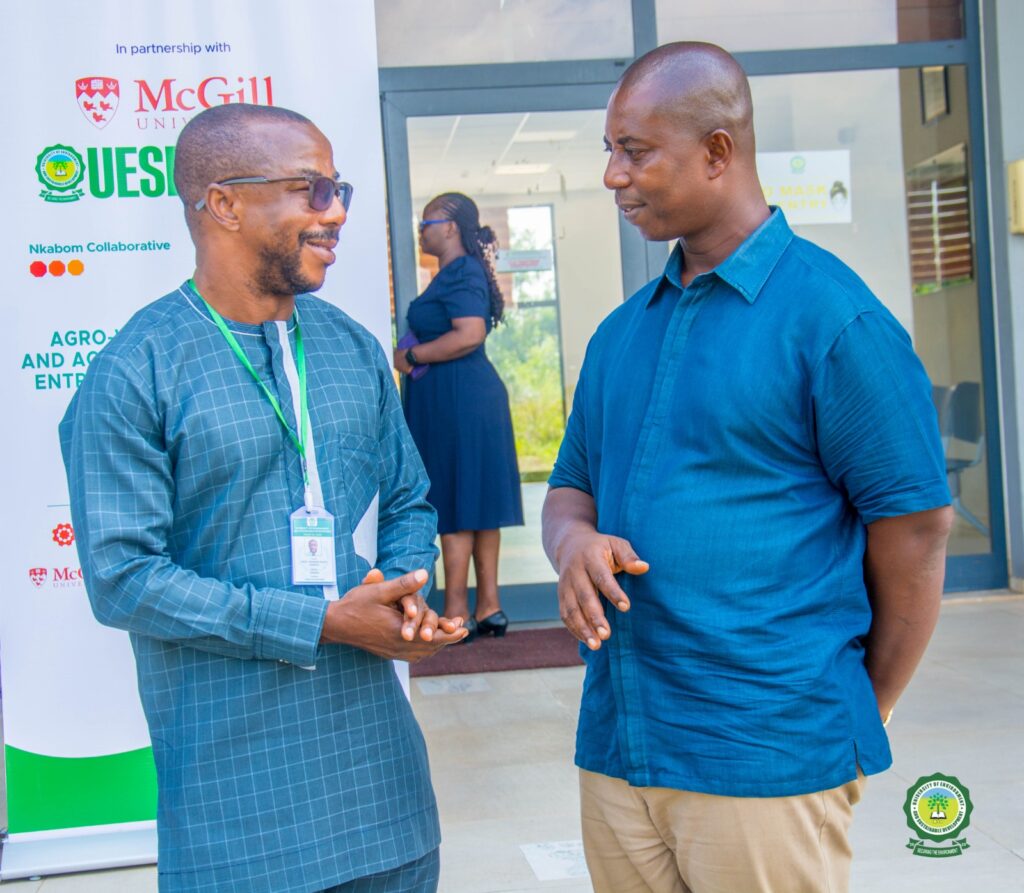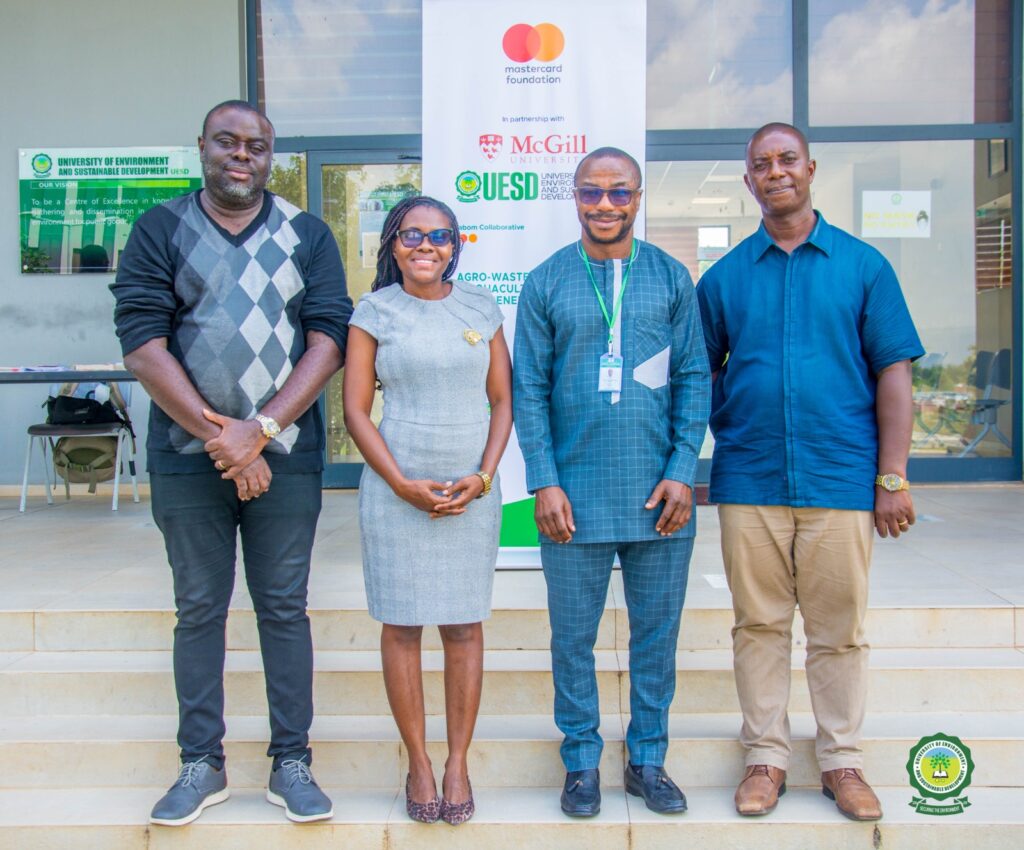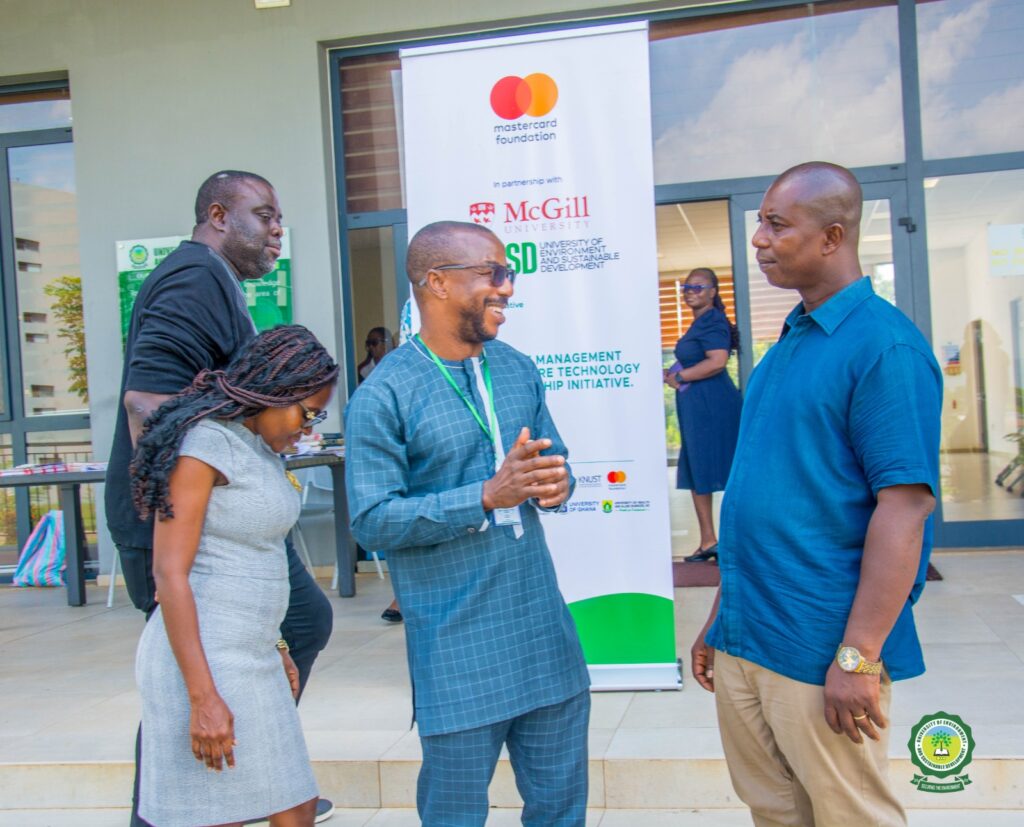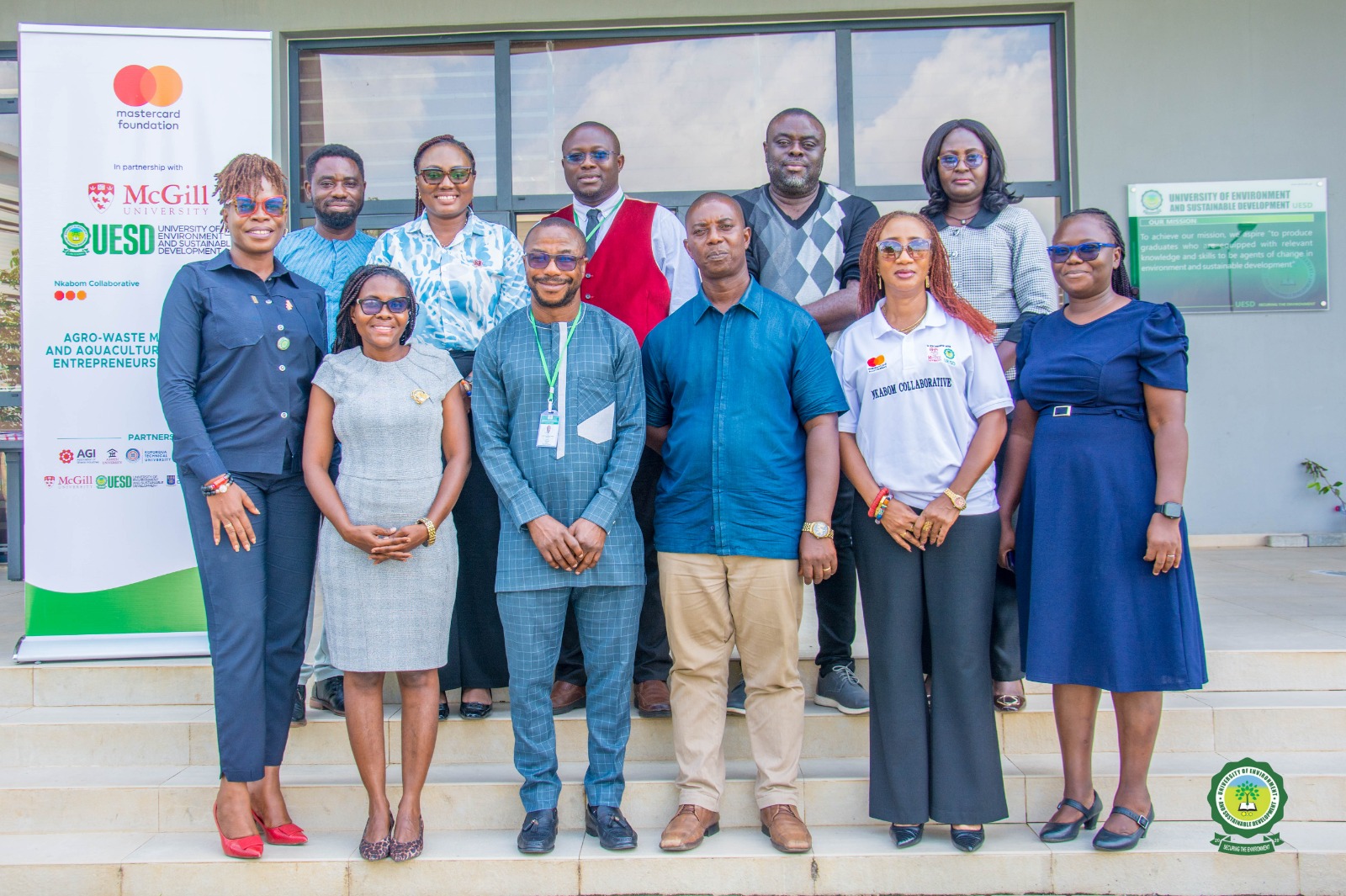The University of Environment and Sustainable Development (UESD),Somanya, Eastern Region through its Nkabom Initiative, has engaged with the leadership of the Ghana Journalists Association (GJA) in the Eastern Region to explore avenues for collaboration in promoting the activities of the initiative.
The meeting, held at the Council Chamber of the University, formed part of UESD’s stakeholder engagement drive under the Nkabom Collaborative. It aimed to strengthen collaboration with the media in in the Region in disseminating information about the Nkabom Initiative and to promote sustainable agro-waste processing and entrepreneurship.




The Project Coordinator of the UESD initiative, Prof. Edward Wiafe Debrah, who also serves as Pro-Vice-Chancellor of the University, in the company of the Nkabom team, briefed the media executives on the objectives and activities of the initiative.
Prof. Wiafe Debrah explained that the Nkabom Collaborative is a partnership involving six public Universities in Ghana, McGill University in Canada and the Association of Ghana Industries (AGI), with support from the Mastercard Foundation. It operates under three key pillars: Education, Access and Success, and Entrepreneurship. Each partner university focuses on a specific thematic area, and UESD’s focus is the Nutrition and Sustainable Agri-Food Systems Collaborative.
He noted that the initiative aligns with a number of the Sustainable Development Goals (SDGs), including Zero Hunger, Affordable and Clean Energy, Responsible Consumption and Production, Climate Action, and Life on Land and Below Water.
Prof. Wiafe Debrah announced plans to organise a capacity-building training programme for media professionals in the Region. The training is expected to equip journalists with the knowledge and skills to effectively communicate issues relating to sustainability, agro-waste innovation, and aquaculture entrepreneurship. He added that through such engagements, the media can help identify the needs of society, enabling the University to design relevant academic and outreach programmes.
The proposed training will cover five modules: understanding agro-waste management systems; aquaculture technology and the green economy; communicating climate and sustainability issues to the public; media ethics and sustainability communication; and site visits to UESD’s agro-waste laboratories and aquaculture demonstration facilities.



He expressed optimism that the engagement and subsequent training would deepen journalists’ understanding of agro-waste management and aquaculture entrepreneurship, enhance public awareness of sustainable food systems, and create a national network of trained sustainability communicators. It would also strengthen the institutional visibility of both UESD and the Nkabom Collaborative.
To formalise the collaboration, Prof. Wiafe proposed the formation of a joint committee between UESD and the GJA and the development of a Memorandum of Understanding (MoU). About forty media practitioners are expected to benefit from the upcoming training programme.
In his remarks, the Chairman of the Eastern Region GJA, Mr. Stephen Ampen-Darko Koranteng, expressed enthusiasm about the proposed partnership. He commended UESD for its proactive approach to engaging the media and reaffirmed the Association’s readiness to collaborate on the training initiative.

He further appealed to UESD to consider sponsoring a “Best Environmental Reporter” category in the Association’s annual awards scheme and to explore opportunities for journalists to enrol in the University’s postgraduate programmes.

